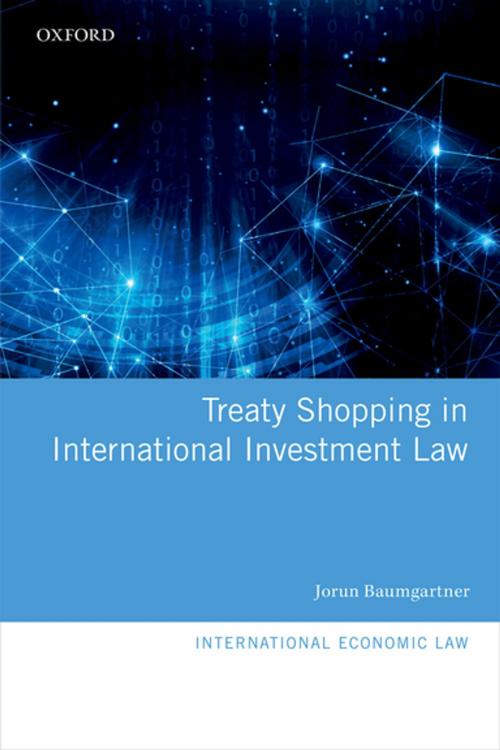Treaty Shopping in International Investment Law
Nonfiction, Reference & Language, Law, Arbitration, Negotiation, & Mediation, International| Author: | Jorun Baumgartner | ISBN: | 9780191090820 |
| Publisher: | OUP Oxford | Publication: | December 1, 2016 |
| Imprint: | OUP Oxford | Language: | English |
| Author: | Jorun Baumgartner |
| ISBN: | 9780191090820 |
| Publisher: | OUP Oxford |
| Publication: | December 1, 2016 |
| Imprint: | OUP Oxford |
| Language: | English |
Treaty shopping, also known under the terms of nationality planning, corporate (re-)structuring or corporate maneuvering, implies a strategic change of nationality or strategic invocation of another nationality with the aim of accessing another (usually more favourable) investment treaty for purposes of investment arbitration. When deciding on whether an investment claim based on treaty shopping should be upheld or dismissed, investment arbitral tribunals have been increasingly faced with significant questions, such as: What is treaty shopping and how may legitimate nationality planning be distinguished from treaty abuse in international investment law? Should a claimant that is controlled by a host-State national be considered a protected investor, or should tribunals pierce its corporate veil? Does an investor have to make the investment in good faith, and does it have to make a contribution of its own to the investment it is claiming protection for? When does a corporate restructuring constitute an abuse of process, and which is the role of the notion of dispute in this respect? How efficient are denial of benefits clauses to counter treaty shopping? Treaty Shopping in International Investment Law examines in a systematic manner the practice of treaty shopping in international investment law and arbitral decisions that have undertaken to draw this line. While some legal approaches taken by arbitral tribunals have started to consolidate, others remain unsettled, painting a picture of an overall inconsistent jurisprudence. This is hardly surprising, given the thousands of international investment agreements that provide for the investor´s right to sue the host State on grounds of alleged breaches of investment obligations. This book analyses and discusses the different ways by which arbitral tribunals have dealt with the value judgment at the core of the distinction between objectionable and unobjectionable treaty shopping, and makes proposals de lege ferenda on how States could reform their international investment agreements (in particular with respect to treaty drafting) in order to make them less susceptible to the practice of treaty shopping.
Treaty shopping, also known under the terms of nationality planning, corporate (re-)structuring or corporate maneuvering, implies a strategic change of nationality or strategic invocation of another nationality with the aim of accessing another (usually more favourable) investment treaty for purposes of investment arbitration. When deciding on whether an investment claim based on treaty shopping should be upheld or dismissed, investment arbitral tribunals have been increasingly faced with significant questions, such as: What is treaty shopping and how may legitimate nationality planning be distinguished from treaty abuse in international investment law? Should a claimant that is controlled by a host-State national be considered a protected investor, or should tribunals pierce its corporate veil? Does an investor have to make the investment in good faith, and does it have to make a contribution of its own to the investment it is claiming protection for? When does a corporate restructuring constitute an abuse of process, and which is the role of the notion of dispute in this respect? How efficient are denial of benefits clauses to counter treaty shopping? Treaty Shopping in International Investment Law examines in a systematic manner the practice of treaty shopping in international investment law and arbitral decisions that have undertaken to draw this line. While some legal approaches taken by arbitral tribunals have started to consolidate, others remain unsettled, painting a picture of an overall inconsistent jurisprudence. This is hardly surprising, given the thousands of international investment agreements that provide for the investor´s right to sue the host State on grounds of alleged breaches of investment obligations. This book analyses and discusses the different ways by which arbitral tribunals have dealt with the value judgment at the core of the distinction between objectionable and unobjectionable treaty shopping, and makes proposals de lege ferenda on how States could reform their international investment agreements (in particular with respect to treaty drafting) in order to make them less susceptible to the practice of treaty shopping.















